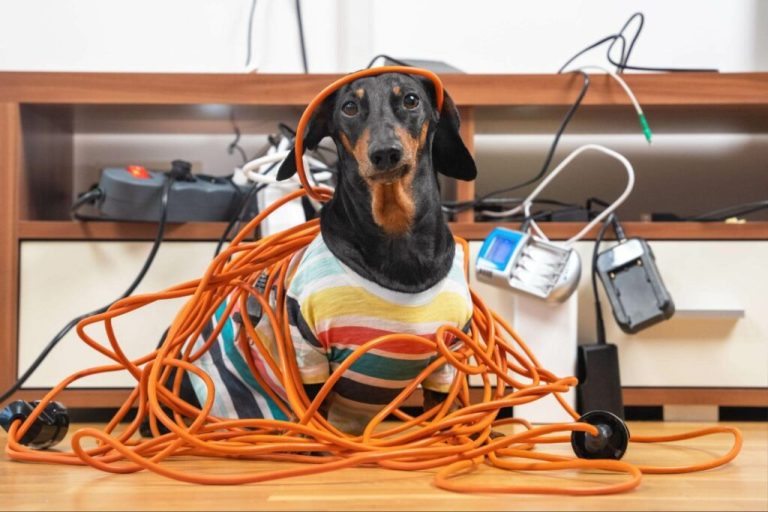Welcoming a new puppy into your home is an incredibly exciting time. They are great companions and make a wonderful addition to the family. However, as a new pup parent it’s important to be prepared and thoroughly puppy proof your home. This will not only protect your valuables, but it will also create a safe environment to ensure your new pup is comfortable and won’t get into things they shouldn’t.
If you own a rental property and allow pets in your lease agreements, it may also be beneficial to puppy proof your property to protect your investment. San Jose property managers Utopia Management claim that allowing pets in your rental will not only increase the rent you can expect, but it expands the pool of interested renters. They encourage their owners to allow pets for these reasons, with a pet clause and pet deposit required.
Whether you’re a proud new owner of a pup or a pet loving landlord, follow these tips to make sure your home is thoroughly puppy proofed.
Use Couch Covers
The last thing you want is your beautiful couch to get scratched or be covered in dog fur. The best thing you can do is purchase a couch cover to protect your investment. You can also use throws to cover your cushions in a pinch. If you’re in the market for a new couch, think twice before choosing white or leather with a new puppy.
Keep Your Trash Hidden
A dog can sniff out everything and while it may be gross to you, your trash is one of their favorite treats. However, your trash may contain a plethora of edible and inedible things that can be extremely harmful to your put. It’s best to not leave your trash out where they can get it and instead keep it under the sink or in a tilt out trash cabinet. In the bathroom make sure your trash bin has a secure lid or remains under the sink behind closed doors.
Cover or Contain Cords
Puppy’s will often try to chew on anything and everything so it’s important to cover or contain electrical cords. Not only will they damage your appliances and electronics, but they run the risk of getting an electrical shock which can be incredibly dangerous and costly if you don’t have pet insurance.
Stow Your Bag or Purse
If you typically throw your back on a chair or coffee table when you come home, be aware that you’re giving your pup free rein to its contents. To protect your belongings and to discourage your furry friend from getting into something they shouldn’t, it’s best to stow your bag out of reach. Create a welcoming entryway with hooks by your door to keep all our belongings up and away from your puppy.
Be Aware of Poisonous Houseplants
Houseplants have a way of breathing life into a space, however, it’s important to be aware which ones might be toxic to your new fur baby. Sago Palms, Azaleas, certain lilies, and Elephant’s Ear are all plants you should skip with a puppy. To make sure your houseplants are safe for a puppy check out ASPCA Animal Poison Control’s list of poisonous plants and flowers.
Create a Puppy Space
Whether it’s a closed off area, a crate, or a plush bed, your pup will need a safe space for them to retreat to when they’re sleepy or you’re not home. Not only will this space be their safe haven, but a confined area will keep them from getting into things they shouldn’t. While a comfy bed will help keep them off your furniture.
Utilize Baby Gates
Not only for babies, baby gates are a great way to create off-limit areas for your pup and block entry ways to stairs or other areas to ensure they stay safe. While you don’t always need to keep them up, a baby gate is a great way to not give your pup full rein of the house while you’re out. If you don’t believe in crate training your dog, keeping them confined to the kitchen with adequate food, water, and a cozy bed will ensure they’re comfortable and can’t wreak havoc while you’re away.
Stow Cleaning Products
While cleaning products are a necessity for a new young puppy who may have an accident here and there, Cleaning products can be extremely toxic to your pup if ingested so it’s important to ensure all chemicals are stowed well out of reach. You can also consider switching to non-toxic or natural cleaning products which are not only healthier for your pup but for you and your family as well.

